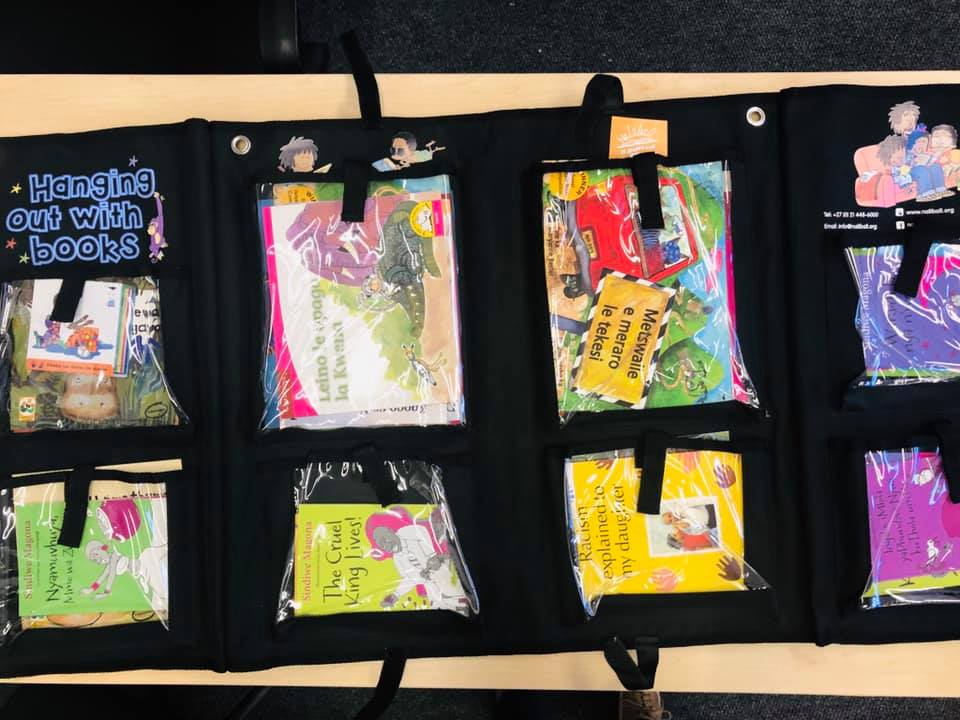With schools and preschools closed, and families spending more time at home to help slow the spread of the coronavirus, many caregivers will be wondering what they can do to keep their children occupied, entertained and learning. To help them, Nal’ibali – the national reading-for-enjoyment campaign – has put together a free support package with story and activity guides, audio and written stories and a virtual reading club.

Says Katie Huston, Chief Operating Officer for Nal’ibali: “These are unprecedented and challenging times for South African families – but they also present an opportunity. Children who grow up with a strong culture of reading in the home are better set up for success in school and in life – and our new reality means families have more time to create new habits, like reading aloud every evening before bed. Routine and predictable activities can give children a lot of comfort in difficult times – and a wonderful way to bond! Other activities, like independent reading, writing and drawing, are great ways to keep kids occupied and make sure their education continues while they are out of school.”
The package is available to members of the public and includes:
-A new story three times a week via email or SMS
-A short and detailed guide on helping children to read and write at home
-A reading-for-enjoyment holiday programme guide packed full of ideas and tips
-Details on the campaign’s virtual reading club
Nal’ibali’s website, www.nalibali.org, offers a vast library of additional resources, including more than 800 stories, songs and rhymes, and storytelling ideas – available in all 11 South African languages. Says Huston: “We’ve selected the resources for our holiday pack to help families get reading as quickly as possible, but we have a huge library to explore once people get started.”
In addition, families are encouraged to take part in Nal’ibali’s 21-day reading challenge specifically designed to help proactively embed a daily reading practice into family life. The challenge invites parents and caregivers to read for 15 minutes or more every day, and those that successfully complete a week will stand a chance to win books and book hampers. Those that complete the full 21 days could win a mini library. A fun progress chart will be available for download from Monday, 30 April from Nal'ibali’s website where members of the public can also pledge their participation.
And, for the many South African families with limited internet access, Nal’ibali recommends tuning in to SABC radio stations to listen to its stories in any of the 11 official languages, three times a week. Apart from simply being entertaining, Nal'ibali’s audio stories expose children to rich language, broaden their worlds and develop critical thinking, imagination and empathy – especially if parents listen too, and find time to discuss the story afterwards.
However, Nal’ibali recognises that South African children, the majority of whom have limited mobile data, marginal access to online resources and few or no books at home, will be hit much harder than children in Europe or the USA. As such, the Nal’ibali campaign is also supporting the DG Murray Trust’s call to mobile network operators to urgently zero-rate the services of public benefit organisations that provide digital content for early learning and education.
“There is a significant opportunity in this crisis to not only get families reading together, but to extend free connectivity to those who need it most. If business and government take bold steps, the coronavirus could push us to rapidly narrow the digital divide in South Africa which will have lasting benefits to children and families,” concludes Huston.
In the meantime, she suggests that those with access to online resources share what they can with those who do not, and use Nal’ibali’s literacy-at-home guides to help establish a regular – and fun! – routine of reading and storytelling in the home.
To access the individuals element of the the holiday package, or to sign up to be a FUNda Leader (part of Nal'ibali’s network of literacy activists), visit the Nal’ibali website at www.nalibali.org. Or, to listen to children’s stories on air, tune in to the below SABC radio stations.
Nal’ibali radio programming:
· Ukhozi FM (isiZulu) Wednesday: 9.20 am., Saturday: 8.50 am.
· Umhlobo Wenene FM (isiXhosa): Monday, Tuesday and Wednesday: 09.30 am.
· SA fm (English): Monday, Wednesday and Friday from 1.50 pm.
· RSG (Afrikaans): Monday, Tuesday and Wednesday from 9.10 am.
· Munghana Lonene FM: (Xitsonga) Monday, Wednesday and Friday: 09.35 am
· Ligwalagwala FM: (SiSwati) Monday, Tuesday and Wednesday: 09.10 am.
· Ikwekwezi FM (Ndebele): Monday, Wednesday and Friday: 09.45 am.
· Thobela FM: (87.6-92.1 FM) (Sepedi) Tuesday, Thursday: 2.50 pm, Saturday: 09.20 am, Sunday: 7.50 am
· Lesedi FM (Sesotho): Monday, Tuesday and Thursday: 9.45 am.
· Phalaphala FM (Tshivenda): Monday, Tuesday and Wednesday: 11.15 am.
· Motsweding FM (Setswana): Monday, Wednesday and Friday: 09.20 to 9.30 am.
For more information about the Nal’ibali campaign, or to access children’s stories in a range of SA languages, visit www.nalibali.mobi or find them on Facebook and Twitter: @nalibaliSA.
